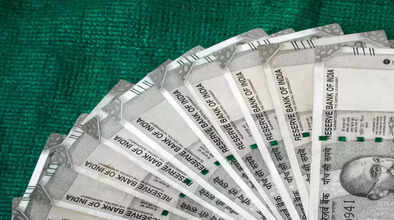FD vs SCSS vs REITs: Where will you make more money on an investment of Rs 10 lakh? See the complete calculation..

Smart Investment Tips: If you have Rs 10 lakh and you are thinking about where to invest it, then there are many options available to you. Schemes like bank fixed deposits (FD), Senior Citizen Savings Scheme (SCSS), Special 444-day deposits, and Real Estate Investment Trusts (REITs) are proving to be attractive for investors in the year 2025. Each option has its own specialty, and the right choice will depend on your risk profile and financial goals.
Fixed Deposit (FD) – Safe and reliable option
FD has always been a reliable investment among Indian investors. At present, banks and NBFCs are offering interest ranging from 7 to 9 percent. Suppose you invest Rs 10 lakh in an FD for 1 year and the interest rate is 8 percent, then you will get interest of about Rs 80,000 at the end of the year.
The biggest feature of FD is that the return is fixed and the principal remains safe. Premature withdrawal facility is also available if needed, although a small penalty may be levied on it. From a tax point of view, the interest received from an FD is fully taxable. Overall, FD is right for those investors who want to make safe investments for the short or medium term.
Senior Citizen Savings Scheme (SCSS) – Best for the elderly
If the investor is 60 years of age or above, then the Senior Citizen Savings Scheme can prove to be excellent for them. In this scheme, the government gives 8.2 percent annual interest, and the interest amount comes to your account every quarter. A maximum of Rs 30 lakh can be invested in SCSS; that is, Rs 10 lakh can be easily invested.
If an investor invests Rs 10 lakh in it, he will get an interest of about Rs 82,000 in a year. This scheme comes with a full government guarantee and also gives the benefit of tax exemption under Section 80C. This is the reason why SCSS is the most attractive option for senior citizens who want a regular income after retirement.
Special 444-day deposits – higher returns in the short term
Many banks are currently running a special fixed deposit scheme of 444 days, in which interest rates range from 7.5 to 8.25 percent. This scheme is for about one year and two months, and it gives a higher interest rate than a normal FD.
If you invest Rs 10 lakh in this 444-day scheme and the interest rate is 8 percent, then you will get interest of about Rs 97,000 to Rs 98,000. This scheme is perfect for those who want to get good returns in the mid-term and avoid taking risks.
Real Estate Investment Trusts (REITs) – Benefit of both dividend and growth
REITs are now rapidly emerging as an attractive option for investors. REITs allow you to invest in the real estate sector and can be easily bought and sold on the stock market. The market cap of REITs in India has crossed Rs 1 lakh crore, and it is continuously increasing. Currently, they are giving a dividend yield of 5 to 7 percent.
If you invest Rs 10 lakh in REITs and assume an average dividend yield of 6 percent, then you will get an annual income of about Rs 60,000. Apart from this, you also get the benefit of increasing property value in the long term i.e., capital growth. This is the reason why this option can be even more attractive for young investors.
Where to invest Rs 10 lakh?
If you want to take less risk, then the FD and 444-day special deposit will be right for you.
If you or your parents are senior citizens, then investing in SCSS will be the best as it gives stable and secure income.
On the other hand, if you want more growth by investing money for a long time and are ready to take some risk, then REITs can be a good option for you.
Actually, the most sensible step would be to invest your 10 lakh rupees in all these options instead of investing it in one place. This will give you safe returns as well as the benefit of growth in the long term.
Disclaimer: This content has been sourced and edited from Zee Business. While we have made modifications for clarity and presentation, the original content belongs to its respective authors and website. We do not claim ownership of the content.

